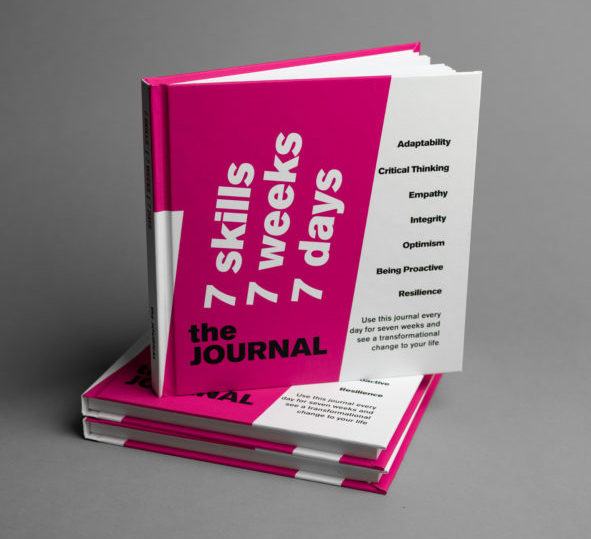Journaling, in a traditional way, is nothing more than writing down your thoughts. This can be similar to writing a diary and taking notes of the happenings in your life, but it can also mean to let go of what is going on in your head and release stress. But what journaling can really help with so much, is true self-reflection and understanding helping you to process emotions and thoughts in a way that really benefits you.
Julia Samuels says that we must make space to process change. Yet we never really do that. We tend to rush from one thing to the next. Journaling can be a way of making that space.
“Making meaning of our life, as opposed to seeking happiness, leads to long-term wellbeing.”
– Julia Samuels
If you want to grow personally and create that meaning, then there is no better way than to journal. According to mental health professionals, journaling is one of the most recommended tools to have a clearer mind and a happier life. It helps to release mental blockades and be more precise about your thoughts.
Writing helps to structure thoughts and experiences. This structure and clarity in return help to assign a meaning to our problems and solve them with ease.
How to get started:
If journaling is new to you, starting small is the best way to go. Even one journaling session per week can help to build the habit of journaling and have a positive impact on your life.
For example, sit down on Sunday evenings, think about what went well and what went wrong in the past week.
What successes did you celebrate and what do you want to improve the next week?
Write your thoughts down and keep journaling until you feel like you have a better and all-rounded picture of your current situation.
As a psychotherapist with over 30 years of experience Julia Samuel knows that change can present moments of crisis and crisis can force moments of extreme change. Julia talks about the moments of change any of us might face in our lifetime and how to best process change and find ways to move forward.
You can journal any time but it’s especially good to write in the mornings – this can help you make sense of the muddle of emotions we can sometimes wake up with but also helps us set intentions for the day and note what we are grateful for.
Writing in the evenings helps us to reflect on the day – note what want well and what we’ve learned. If we’ve been particularly stressed, writing can help us work through stress triggers and emotion. It can help you let go of the day’s experiences and even set you up for a great night’s sleep.

I created the 7 Skills journal to help nurture each of the 7 skills. Over just 7 weeks this can help transform your life. The journal is packed with prompts, gratitude practice and reflections. Just 10 minutes morning and evening are enough!
